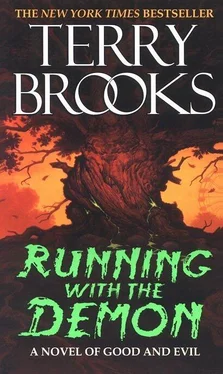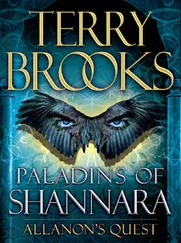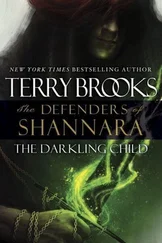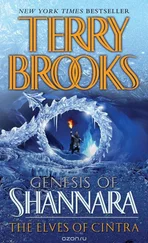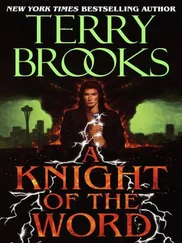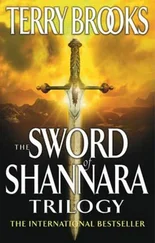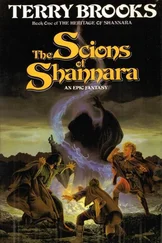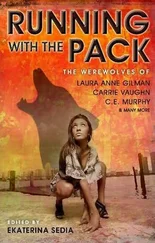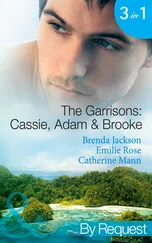"Any news on the strike?" Nest asked her grandfather after they had finished talking about fishing, mostly in an effort to hold up her end of the conversation.
He shook his white head, swallowed the last bite of his dinner, and pushed his plate back. His big shoulders shrugged. "Naw, they can't even agree on what day of the week it is, Nest." He reached for his newspaper and scanned the headlines. "Won't be a resolution any time soon, I don't expect."
Nest glanced at Gran, but her grandmother was staring out the window with a blank expression, a lighted cigarette burning to ash between her fingers.
"Not my problem anymore," Old Bob declared firmly. "At least I got that to be thankful for. Someone else's problem now."
Nest finished her dinner and began thinking about Pick and the park. She glanced outside at the failing light.
"Look at this," Old Bob muttered, shaking out the paper as if it contained fleas. "Just look at this. Two boys dropped a five–year–old out a window hi a Chicago apartment. Fifteen stories up, and they just dropped him out. No reason for it, they just decided to do it. The boys were ten and eleven. Ten and eleven! What in the hell is the world coming to?"
"Robert." Gran looked at him reprovingly over the rim of her glass.
"Well, you have to wonder." Old Bob lowered the paper and glanced at Nest. "Excuse my language." He was silent for a moment, reading. Then he opened the inside page. "Oh, my." He sighed and shook his head, eyes bright with anger. "Here's another, this one quite a bit closer to home. One of those Anderson girls used to live out on Route Thirty shot and killed her father last night. She claims he's been molesting all of the girls since they were little. Says she forgot about it until it came to her in a dream." He read on a bit, fuming. "Also says she has a history of mental problems and that the family hasn't had anything to do with her for some time."
He read for a little while longer, then tossed the paper aside. "The news isn't worth the paper it's printed on anymore." He studied the table a moment, then glanced at Gran, waiting for a response. Gran was silent, looking out the window once more. Her hand lowered in a mechanical motion to the ashtray to stub out the cigarette.
Old Bob's eyes turned sad and distant. He looked at Nest. "You going out to play again?" he asked quietly.
Nest nodded, already beginning to push back from the table.
"That's all right," her grandfather said. "But you be back by dark. No excuses."
The way he said it made it plain that, even though he hadn't brought the subject up at dinner, he hadn't forgotten about last night. Nest nodded again, letting him know she understood
Her grandfather rose and left the table, taking the newspaper with him, retiring to the seclusion of his den. Nest sat for a moment staring after him, then started to get up as well.
"Nest," her grandmother said softly, looking directly at her now. She waited until she had the girl's attention. "What happened this afternoon?"
Nest hesitated, trying to decide what to say. She shrugged. "Nothing, Gran."
Her grandmother gave her a long, hard look. "Carry your dishes to the sink before you go," she said finally. "And remember what your grandfather told you."
Two minutes later, Nest was out the back door and down the porch steps. Mr. Scratch had disappeared and Miss Minx had taken his place. As designated mouser she had assumed a more alert position, crouched down by the toolshed, sniffing at the air and looking about warily. Nest walked over and scratched her white neck, then headed for the hedgerow and the park. Mosquitoes buzzed past her ears, and she swatted at them irritably. Magic didn't seem to do any good when it came to mosquitoes. Pick claimed once that he had a potion that would keep them at bay, but it turned out to be so evil–smelling that it kept everything else at bay as well. Nest grimaced at the memory. Even a hundred–and–fifty–year–old sylvan didn't know everything.
She was nearing the hedgerow, listening to the sounds of the softball games in progress on the other side, when she glanced left into the Peterson backyard and saw the feeders. There were two of them, hiding in the lilac bushes close by the compost heap that Annie Peterson used on her vegetable garden. They were watching Nest, staring out at her with their flat, expressionless eyes, all but invisible in the approaching twilight. Their boldness frightened her. It was as if they were lying in wait for her, hoping to catch her off–guard. They were implacable and relentless, and the certainty of what they would do to her if they had the chance was unnerving. Nest veered toward them, irritated anew by the feelings they aroused in her. It was getting so she couldn't go anywhere without seeing them.
The feeders blinked once as she neared, then simply faded away into the shadows.
Nest stared into the empty gloom and shivered. The feeders were like vultures, waiting to dispose of whatever leavings they could scavenge. Except that feeders were only interested in the living.
She thought back to what Pick had told her years ago when she had asked about the feeders. Her grandmother had avoided the subject for as long as Nest could remember, but Pick was more than willing to address it.
"Your grandmother won't talk about them? Won't say a single word about them? Not a single word? Well, now. Well, indeed!" He'd scrunched up his moss–bearded face and scratched at the side of his head as if to help free up thoughts trapped in his cranium. "All right, then, listen up. First off, you need to understand that feeders are an anomaly. You know what that word means, don't you?"
Since she'd been only eight at the time, she hadn't the slightest idea. "Not really," she'd said.
"Criminy, your education is a mess! Don't you ever read?"
"You don't read," she'd pointed out.
"That's different. I don't have to read. I don't need it in my line of work. But you, why, you should be reading volumes of…"
"What does anoma–whatever mean?" she'd pressed, unwilling to wait through the entirety of Pick's by–now–familiar lecture on the plight of today's undereducated youth.
He had stopped in midsentence, harrumphed disapprovingly at her impatience, and cleared his throat. "Anomaly. It means 'peculiar.' It means 'different.' It means feeders are hard to classify. You know that guessing game you used to play? The one where you start by asking, 'Animal, mineral, or vegetable?' Well, that's the kind of game you have to play when you try to figure out what feeders are. Except feeders aren't any of these things, and at the same time they're all of them, because what they are is determined to a large extent by what you are." She'd stared at him blankly.
He'd frowned then, apparently deciding that his explanation was lacking. "Let's start at the beginning," he'd declared, scooting closer to her atop the picnic table in her backyard.
She'd leaned forward so that her chin was resting on her hands and her eyes were level with his. It was late on a spring' afternoon, and the leaves of the trees were rustling with the wind's passing, and clouds were drifting across the sun like cottony caterpillars, casting dappled shadows that wriggled and squirmed.
"Feeders," he'd said, deepening his voice meaningfully, "don't come in different sizes and shapes and colors. They don't hardly have any faces at all. They're not like other creatures. They don't eat and sleep. They don't have parents or children or go to school or elect governments or read books or talk about the weather. The Word made feeders when he made everything else, and he made them as a part of the balance of things. You remember what I told you about everything being in balance, sort of like a teeter–totter, with some things on one end and some on the other, and both ends weighing the same. Feeders, they're part of that. Frankly, I don't know why. But, then, it's not my place to know. The Word made the decision to create feeders, and that's the end of it. But having said that, having said that it's not my place to know why these feeders were made, it is my place to know what they do. And that, young lady, is what's interesting. Feeders have only one purpose in this world, only one, single, solitary thing that they do."
Читать дальше
